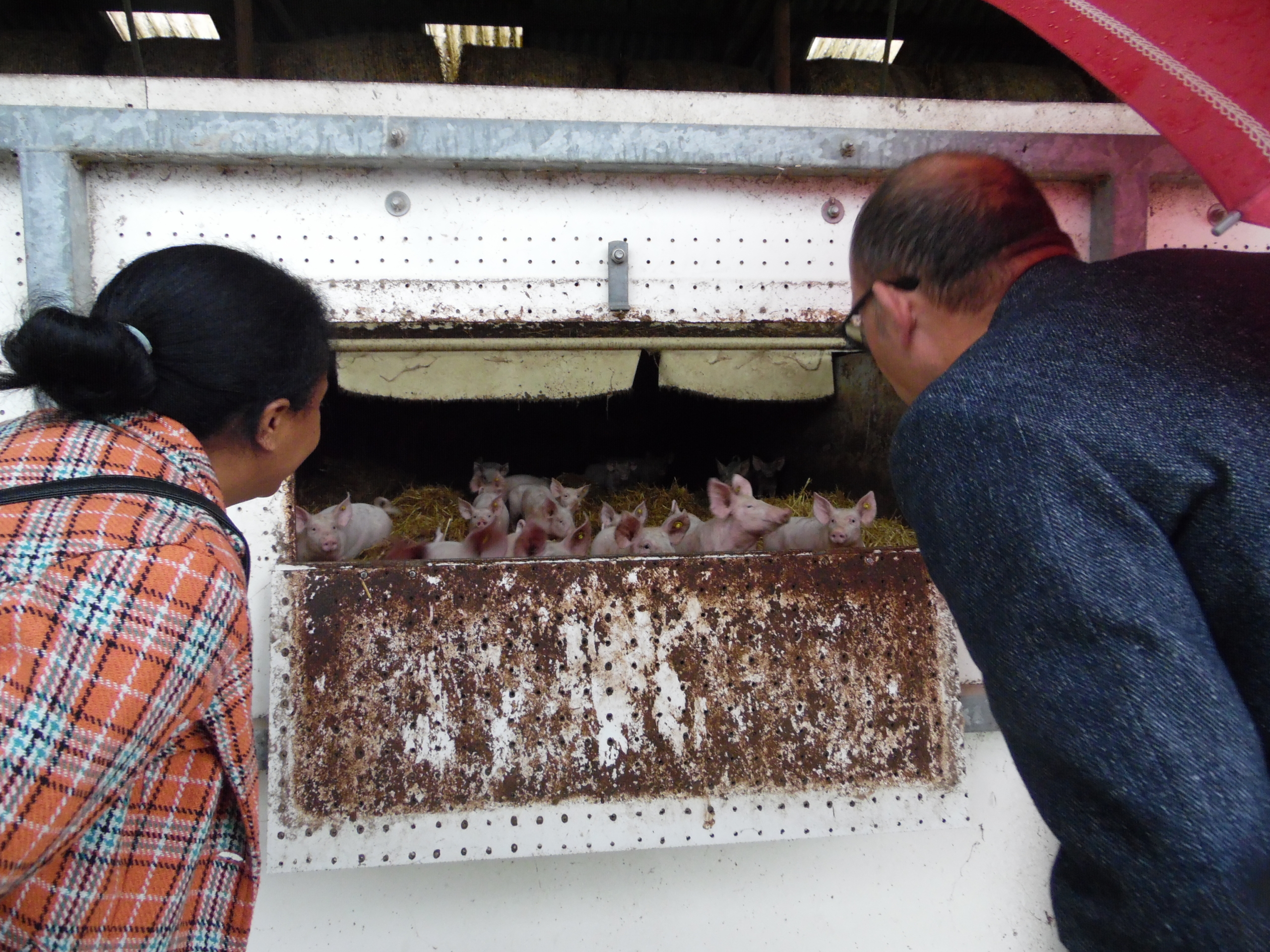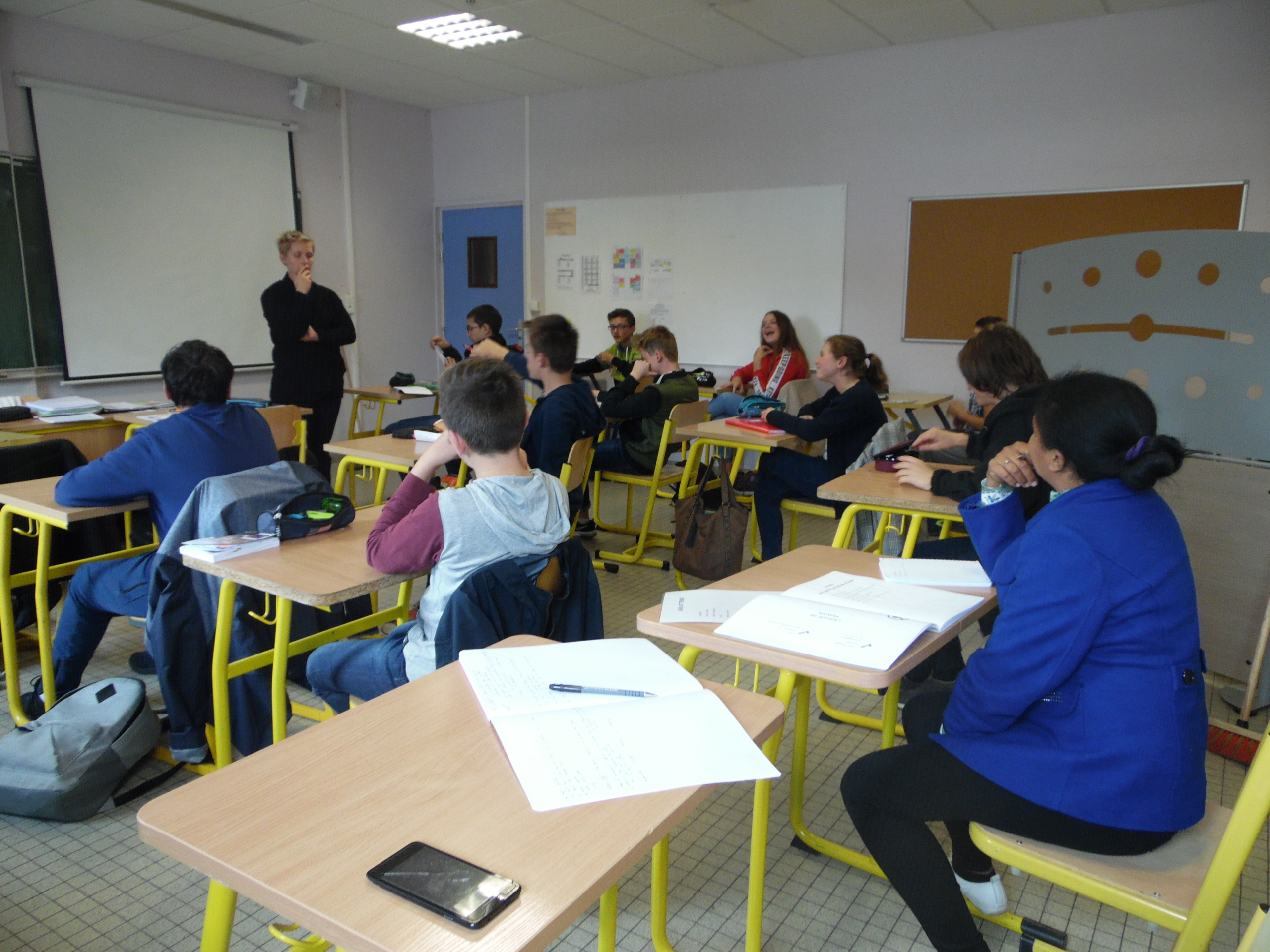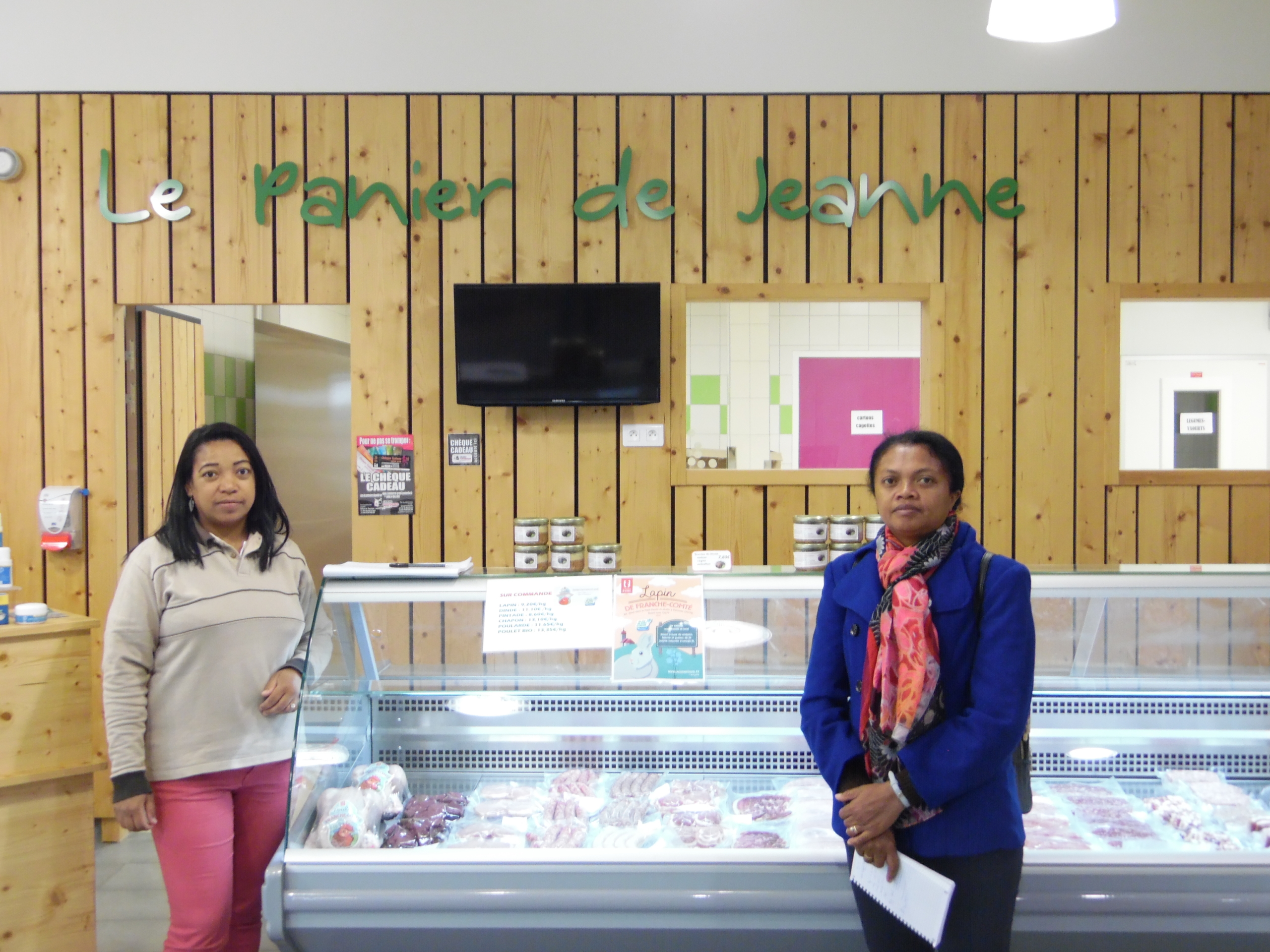Partners since 2001, the Agri-agency Fert and the Cneap (National Council for Private Agricultural Education) accompany 5 agricultural colleges federated within Fekama, a member of the Fifata group, in Madagascar. With the aim of training competent young farmers, the trainers of the colleges strive to adopt the most effective pedagogy possible. In order to let Fekama benefit from the Cneap’s long experience, from 6 to 19 October 2019, Fert, the Cneap and Fekama organised a study trip to France to the agricultural colleges of Dol-de-Bretagne and Pontarlier for Rova, educational adviser, and Maharavo, director of one of the Fekama agricultural colleges.
What were your expectations for this trip?
Visit of the educational farm of the agricultural high school Les Vergers in Dol-de-Bretagne
Rova
Following the action plan drawn up during the Cneap mission to Madagascar in 2017, I wanted to see how teaching methods and techniques such as pluriactivity or the inductive method that we have started to implement in secondary schools are practiced in Cneap high schools. I also wanted to learn about the modalities and tools to evaluate students in a competency-based approach.
Maharavo
As headmistress, I mainly wanted to learn about school management, but Cneap’s agricultural high schools are so big compared to Fekama’s agricultural high schools that I focused my questions on school life and educational management, as well as conducting trainings, because I am also a trainer.
What surprised you the most?
Maharavo
All learning is very detailed: every task is broken down step by step and every gesture is very detailed. For example, after having freed a cow, at home the pupils carelessly bend the rope and throw it into the cupboard, whereas in the Cneap high school we went to, we saw that the pupils even learn how to tie a knot well!
Rova
The students are lucky to have beautiful infrastructures that allow them to do documentary research even on the internet and very well equipped educational farms.
On the other hand, I was surprised that few teachers are trained to strengthen their skills, especially in relation to pedagogical innovations. I was also impressed by the way they deal with difficult students: with their posture alone, the teachers manage to restore calm without even having to raise their voices!
Observation of an indoor class at the Jeanne d’Arc technological high school in Pontarlier
What are the most important things you’ve learned?
Visit to Jeanne’s basket, a sales shop where the students of the Pontarlier high school practise sales
Rova
Everything was very enriching but I especially remember the importance of having tools for the trainers (timetable, teaching tape) that are really useful and up-to-date. Cneap high school teachers have a binder with all their tools, posted and kept up to date.
On the evaluation of the students I also saw many examples, which will allow me to build and have the trainers build coherent grids.
Maharavo
I learned a lot about educational management, such as closing the dormitories, putting lockers for students in the classrooms, keeping the young people busy and entertained on weekends … I also saw the importance of developing a school project in order to have a medium-term vision.
I also appreciated the quarter of an hour of reading and the obligation to watch the news on TV to awaken critical thinking. I will try to implement this in my agricultural college of Befandriana (in the north of Madagascar).
Are there things you are proud of in the Fekama colleges in Madagascar?
Maharavo
As principals, we strive to accompany and follow the trainers, we know what is going on in the classrooms. But when the high schools are big like the ones we visited, the management is no longer directly involved in the formation and its coordination.
We also manage to involve the parents of the students, who take part in several meetings a year.
Rova
I am proud to see that in Fekama colleges, innovations such as the inductive approach or pluriactivity are appropriated by the trainers and well integrated into their practices.





